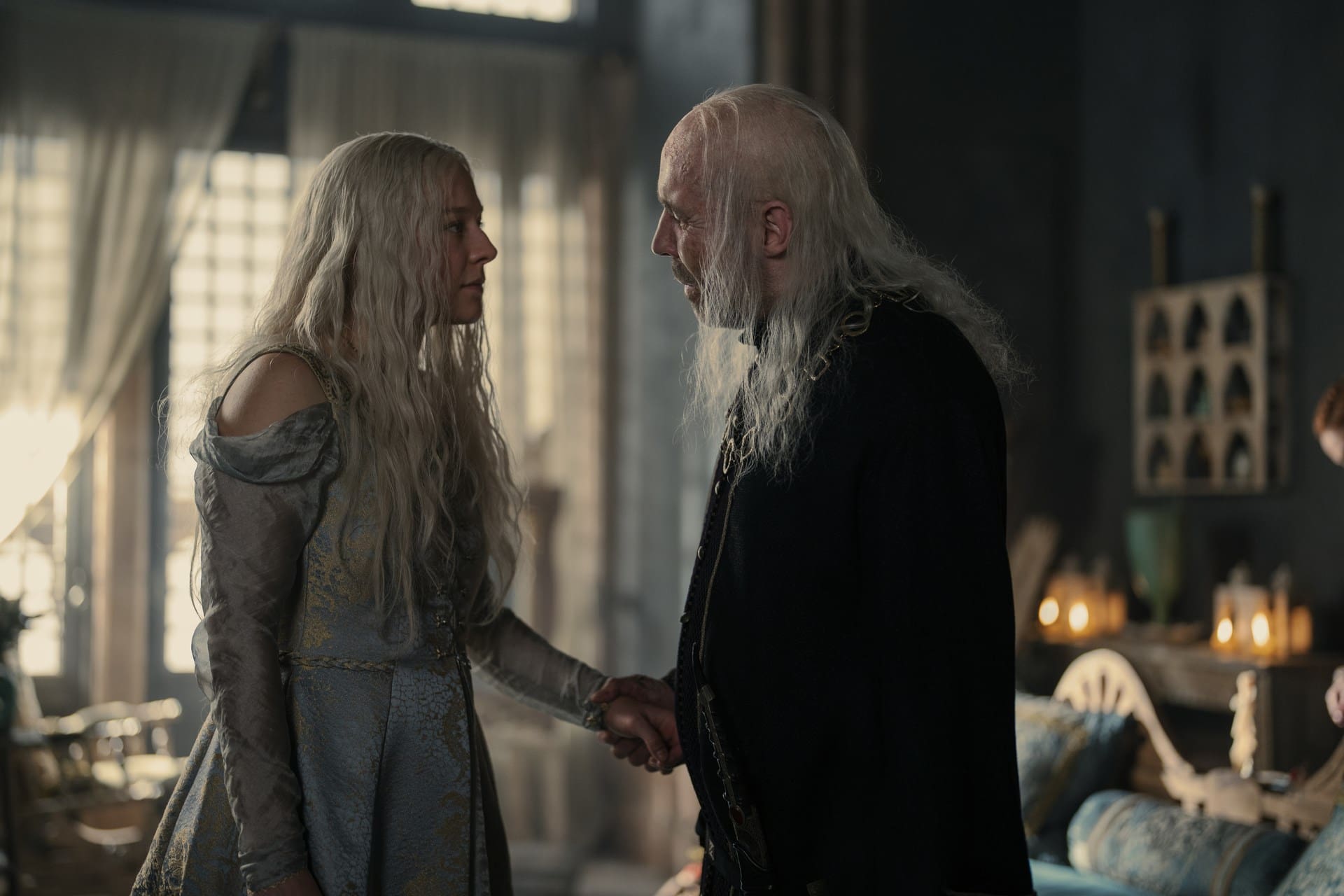
It’s been a few weeks since the regular House of the Dragon column. Life, work and covering a two-day music festival does sometimes mess with the weekly writing schedule.
Yet, in this case, it might be for the better.
House of the Dragon has gone from an intriguing re-entry into the world of George R.R. Martin’s Game of Thrones universe into full-fledged, appointment-viewing, prestige television.
The series, which was a hit from the jump, not only cleansed the palette of GoT fans who were left with the worst taste in their mouth, but it has reignited the passion people have for George R.R. Martin’s world with an unbridled passion. The viewership increases every week are mind boggling as its hitting numbers are what GoT achieved at its height.
The reason for the jump, in this writer’s humble opinion, is because the show…is just that good.
This seems like an oversimplification of things, but unlike other IP-based properties, this isn’t getting by on the goodwill of previous works. The final season of Game of Thrones is absolutely reviled by so many that — at most — the goodwill for House of the Dragon could only really be extended to the premiere episode. Viewership doesn’t increase based on faith and gravitas; it increases based on quality.
And House of the Dragon is flush with quality.
The season-long storyline of who will succeed King Viserys (Paddy Considine, Peaky Blinders) has proven that this series does not need to rely on the sword, sorcery, and spectacle of Game of Thrones in order to bring an audience in. The political and familial machinations of the actual “game of thrones” of this season is just as tantalizing and more akin to Succession than the original series — which was no stranger to family drama.
While action and violence are no strangers in the series so far, they never seem to be the focal point of an episode. Instead, they are consequences of character actions. Bloodshed is more of an explosion in House of the Dragon, thus making it so much more visceral and important. There’s no violence for the sake of violence, it’s all well-earned.
House of the Dragon has also moved away from the weaknesses of the initial episodes. Sexposition is long gone. The over-abundance of references to family names and lands has subsided. The pacing has gone from glacial to deliberate. The use of dragons has been sparing and meaningful. In short, House of the Dragon has cut back on the excesses, and it seems those behind the show perceived what brought audiences in.
The series deserves major credit for writing a time-hop mid-season and recasting its lead characters: Rhaenyra and Alicent. Milly Alcock (Upright) and Emily Carey (Tomb Raider) were both brilliant in their portrayals as the young royals, and the series would not have suffered had they remained in their roles to the first season finale. Yet, the decision to replace Alcock with Emma D’Arcy (Truth Seekers) and Carey with Olivia Cooke (Thoroughbreds) paid off in spades in Episode 6, “The Princess and The Queen.” Cooke and D’Arcy are absolutely masterful in their new roles. Cooke evolving Alicent into a Sersei-level character is genius character-building, while D’Arcy is the perfect evolution of the strong-willed, unsinkable heir to the throne.
The evolution of Matt Smith (Doctor Who) as Daemon has also been one of the greatest parts of the series. Smith found his footing and really imbued much-needed complexity into the chaotic Targaryen prince. Daemon, as a character, felt too all over the place, and to an extent he still is, but Smith has found a way to control the chaos of the character (not unlike what he did in Doctor Who). Throughout the series we’ve seen Smith prove his action chops while also making our skin crawl with that infamous scene in Episode 4, “King of the Narrow Sea.”
Yet, the series wouldn’t work if the king were not a complicated mess. Paddy Considine is able to make Viserys such a sad, frustrating, relatable and tragic figure — sometimes all at once. The performances of Rhys Ifans (Otto Hightower), Fabien Frankl (Criston Cole), Matthew Needham (Larys Strong), and John Macmillan (Laenor Velaryon) have bolstered every episode they’ve appeared in, thus keeping the GoT tradition of amazing supporting casts.
In short, House of the Dragon has become everything HBO hoped for and more. It has resurrected a much-maligned franchise and taken it to new heights. It’s become a destination for those starving for all the rich, juicy, sensational drama of the original series, but done with much more political intrigue, show-stopping acting, and wonderfully crafted storylines.


Comments are closed.